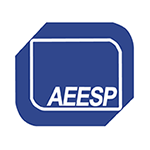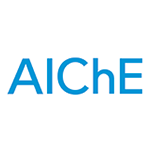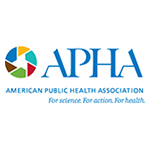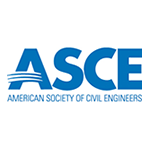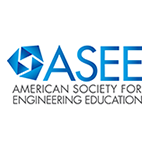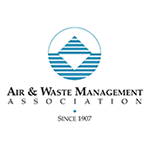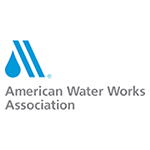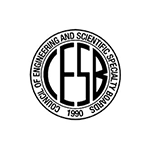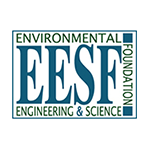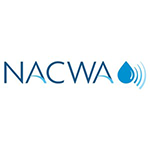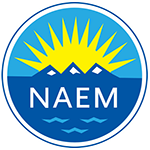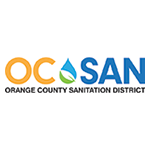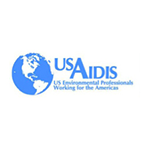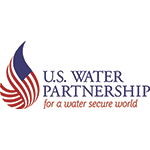- Home
- Contact Us
- News & Events
- Awards
- AAEES Awards Criteria
- 40 Under 40 Recognition Program
- Edward J.Cleary Award
- Excellence in Environmental Engineering and Science Education
- Gordon Maskew Fair Award
- Honorary Member
- International Honorary Member
- Ralph and Joe Bales Graber Science Award
- Stanley E. Kappe Award
- Environmental Communications Awards Competition
- Excellence in Environmental Engineering and Science Competition
- The AAEES Chapter Blue Marble Award
- Resources
- AAEES Microcredentials
- Annual Reports
- AAEES Press Releases
- AAEES Website How To VIdeos
- Environmental Engineer and Scientist
- Environmental Engineering Body of Knowledge
- PFAS Resources
- Specialty Examination Guide
- Students and Young Professionals Resources
- Who's Who in Environmental Engineering & Science®
- Leadership Opportunities
- Membership
- Donate
- Jobs
40 Under 40 Recognition Program
The American Academy of Environmental Engineers and Scientists is proud to introduce the AAEES 40 Under 40 Recognition Program. This program was introduced to recognize talented individuals who have, either personally or as part of a team, been responsible for helping to advance the fields of Environmental Science or Environmental Engineering in a demonstrable way within the last 12 months. A nominee must be under 40 at the end of the calendar year in which they are nominated. Winners are chosen by a panel of past recipients who weigh equally business successes and civic/philanthropic activities. Click here for the full criteria and nomination forms.2026 Recipients
Mohamed S. Gaballah Awad, Ph.D. Dr. Mohamed S. Gaballah Awad is a Lecturer I in the School of Engineering and Technology at Central Michigan University (CMU). Since joining CMU in 2023, Dr. Awad has focused his research on developing and optimizing constructed wetlands for pollutant removal, enhancing anaerobic digestion systems for bioenergy production, and advancing nanomaterial-based technologies for treating animal wastewater containing veterinary antibiotics and microplastics. His work investigates the fate, transport, and removal mechanisms of emerging contaminants, with the goal of providing low-cost, scalable, and sustainable wastewater treatment solutions. Dr. Awad is a researcher who combines agricultural knowledge with environmental engineering expertise, offering deep insights into the interactions between contaminants, microbial processes, and water treatment systems. This interdisciplinary perspective allows him to design innovative solutions that are both scientifically robust and practically applicable, addressing pressing challenges in water quality, waste management, and bioenergy recovery. He has published over forty articles in high-impact journals, twenty of which have been published since joining CMU, reflecting his dedication to advancing sustainable technologies and environmental protection. Beyond his research and teaching Environmental Engineering classes, Dr. Awad actively contributes to the academic and professional community as a reviewer for more than thirty peer-reviewed journals, a mentor to students and early-career researchers, and a participant in research evaluation committees.
Nefeli Bompoti, Ph.D. Dr. Nefeli Bompoti is an Assistant Professor in the Department of Civil and Environmental Engineering at the University of Massachusetts Dartmouth. Her expertise is in fate and transport of pollutants, sustainable land reuse, and environmental policy. Through her research group, the Environmental Research and Sustainability Lab, Dr. Bompoti investigates the interactions between human activities and environmental systems, with a focus on contaminant transport, environmental justice and climate resilience, and sustainable redevelopment. Dr. Bompoti secured over $1 million in federal research funding as Principal Investigator, advancing reactive transport modeling and promoting equitable development to strengthen community resilience. Dr. Bompoti currently leads several research initiatives, including the Brownfields Revitalization Anti-Displacement Strategies (BRADS) program, the advancement of reactive transport models for contaminant behavior, and climate resilience technical assistance under the UMassD Blue Economy Initiative. Through experimental research and modeling, her lab advances equitable, science-based solutions for cleaner water, sustainable land use, and more resilient communities. Partnering with academic institutions, national laboratories, and nonprofit organizations, Dr. Bompoti addresses critical challenges at the intersection of environment, energy, and climate change with a strong emphasis on equity. She received a PhD in environmental engineering from the University of Connecticut, a MSc in water resources science and technology and a Diploma in civil engineering from the National Technical University of Athens, Greece.
Ashley Butzlaff, Ph.D. Dr. Ashley Butzlaff is a Stormwater Quality Engineer with the City of Springfield, Missouri, where she leads initiatives to enhance regional water quality through collaborative, community-driven approaches. She is committed to strengthening stormwater management efforts by integrating research-led resources and innovative practices to develop practical and effective solutions. Through her role, Dr. Butzlaff will advance regional collaboration, aligning municipal priorities, public engagement, and scientific innovation to improve stormwater quality. Her previous research and professional work have focused on advancing next-generation water treatment technologies, including PFAS removal and degradation, resource recovery, and materials-based design of electrochemical systems. Before joining the City of Springfield, Dr. Butzlaff served as an Environmental Engineer with the U.S. Environmental Protection Agency’s Office of Research and Development, where she evaluated advanced treatment technologies for the removal and degradation of emerging and micropollutants. Her work on photo-activated electrochemical PFAS mineralization at the EPA was recognized as a Pathfinder Innovation Project (PIP), an honor awarded to pioneering research with the potential to transform environmental protection and public health outcomes. Dr. Butzlaff earned her Ph.D. in Environmental Engineering from the University of Iowa in 2023 and her B.S. in Chemical Engineering from Washington University in St. Louis. She is an active member of the American Society of Civil Engineers (ASCE), the Water Environment Federation (WEF), and her local community.
Xiujuan Chen, Ph.D., P.Eng. Dr. Xiujuan Chen is an Assistant Professor of Environmental Engineering in the Department of Civil Engineering at the University of Texas at Arlington. Her research areas include water resource recovery, wastewater treatment, membrane filtration engineering, environmental applications of nano technologies, oil spill cleanup and waste management, and environmental systems planning. Her work advances sustainable treatment solutions for various contaminants such as oily wastes, microplastics, and per- and polyfluoroalkyl substances (PFAS), contributing to cleaner water systems and resilient communities. Her funded projects span nanocomposite membrane development, nature-based solutions, PFAS removal technologies, and low-cost water and wastewater treatment for rural communities. She has authored/co-authored over 70 peer-reviewed journal papers with an SCI-based h-index of 26. Dr. Chen is a licensed professional engineer in environmental engineering and received many awards, such as the STARs Award from the University of Texas System and the Québec Merit Postdoctoral Fellowship. Dr. Chen is actively engaged in professional service. She currently serves on the Editorial Board of the Journal of Hazardous Materials: Organics and as an Associate Editor for Frontiers in Membrane Science and Technology. Beyond her research, she is passionate about student mentoring and community engagement, integrating service learning and sustainability into engineering education.
Julie A Korak, Ph.D., P.E. Dr. Julie Korak is an Assistant Professor in the Department of Civil, Environmental, and Architectural Engineering at the University of Colorado Boulder. Her research focuses on advancing water treatment engineering. She investigates processes spanning municipal drinking water, water reuse, and industrial wastewater management. Recent projects include waste brine management for ion exchange systems, corrosion control in distribution systems, and organic matter characterization for potable reuse. Her work integrates fundamental science with applied solutions to improve water quality and protect public health. Before joining CU Boulder in 2018, Dr. Korak worked at the Bureau of Reclamation, U.S. Department of the Interior, where she led applied research studies supporting small, rural water systems and tribal communities. At CU Boulder, she has built a research group that partners with federal and state agencies, municipalities, tribal nations, and private industry. Dr. Korak is an active member of the American Chemical Society and American Water Works Association. Dr. Korak is a licensed Professional Engineer in Colorado. She holds two B.S. degrees in Chemical Engineering and Environmental Engineering, as well as M.S. and Ph.D. degrees in Civil (Environmental) Engineering, all from the University of Colorado Boulder. Her achievements include the publication of over 30 articles, a U.S. patent, and multiple awards and recognitions for teaching and research. She was a member of the inaugural Early Career Editorial Advisory Board member for Environmental Science & Technology and currently serves as an Associate Editor for ACS Omega.
Max Krause, Ph.D. Environmental Engineer Max Krause is an Environmental Engineer at the U.S. Environmental Protection Agency. He manages and conducts laboratory, field, and computer-based applied research in solid and hazardous waste management to inform federal policymakers, state partners, and non-governmental organizations. His primary research focus has been on waste issues such as elevated temperature landfills, methane generation from food waste, greenhouse gas modeling and validation with next-generation emission measurement methods, and PFAS destruction technologies for wastewaters. Dr. Krause has authored or co-authored dozens of peer-reviewed journal articles, EPA reports, and fact sheets, and is an associate editor for the journal Waste Management. He is also responsible for all aspects of technical support, code writing and development, and maintenance, for EPA’s Hydrologic Evaluation of Landfill Performance (HELP) model and Landfill Gas Emissions Model (LandGEM). Besides landfill research, Max also enjoys bowling, watching horror films, and spending time with his wonderful wife and daughter.
Yuchuan Lai, Ph.D., P.E. Dr. Yuchuan Lai is a research engineer at Tetra Tech, specializing in the development of practical engineering solutions to enhance infrastructure resilience, with a particular emphasis on climate change adaptation for water resources. Dr. Lai’s research addresses some of our nation’s most pressing issues in understanding the forecasting of regional climate change and its impact on critical infrastructure systems. Dr. Lai’s expertise in infrastructure engineering, sustainable water management, and climate change science has enabled the application of his research to a range of studies such as identifying the regional impacts of climate change, advancing engineering efforts to ensure climate-resilient infrastructure, and informing water management strategies to mitigate climate change-induced water scarcity. Notable completed projects led by Dr. Lai include historical runoff and climate change analyses for watersheds in California’s Central Valley, long-term climate change assessments of the Colorado River Basin, and the modeling and analysis of temperature increases and associated water quality implications in drinking water distribution systems. Dr. Lai is currently involved in several projects related to water resources management and data analytics including extreme rainfall statistics and modeling. Dr. Lai received his Ph.D. in civil and environmental engineering from Carnegie Mellon University in 2020. Dr. Lai is a member of American Society of Civil Engineers Technical Committee on Adaptation to a Changing Climate (Future Weather and Climate Extremes) and is a registered civil engineer in the State of California.
Jason Chun-Ho Lam, Ph.D. Prof. Jason Chun-Ho Lam is an associate professor at City University of Hong Kong. He earned his Ph.D. in Chemistry from Michigan State University and completed postdoctoral training at Yale University. His independent research focuses on upcycling waste into value-added products, with over 80 peer-reviewed publications to his name, including his own corresponding-author papers in high-profile journals such as Nature Communications, Energy & Environmental Science, Angewandte Chemie, ACS Catalysis, Environmental Science & Technology, Green Chemistry, and more. Beyond the lab, he has served as a consultant for local and international environmental firms, developing waste upgrading and treatment technologies. His recent project on upgrading electronic waste secured over HK$1 million in combined sponsorship from government agencies, private-sector partners, and patent licensing. He has also collaborated with WWF-Hong Kong to convert plant waste into renewable energy materials, merging innovation with biodiversity conservation. In education and community outreach, Prof. Lam serves as programme leader for his department’s undergraduate environmental curricula. He regularly delivers STEM talks to high school students, mentors undergraduate and secondary-school research initiatives, and organizes waste-management seminars and workshops for government agencies and research institutes. His recent accolades besides the 2026 AAEES 40 under 40 award, include the 2025 Geneva Gold Medal with Jury’s Congratulations, Stanford’s Top 2% Most-Cited Scientists list (2024 and 2025), the 2024 ACS Energy & Fuels Rising Star, and the 2023/24 University’s Teaching Excellence Award.
Mi-Ling Li, Ph.D. Dr. Mi-Ling Li is an Assistant Professor in the School of Marine Science and Policy at the University of Delaware, with joint affiliations in Civil and Environmental Engineering, Earth Sciences, the Water Science and Policy Program, the Delaware Environmental Institute, and Center for Bioinformatics and Computational Biology and Data Science Institute. Her cross-disciplinary leadership integrates environmental chemistry, data science, and policy to advance understanding of global contaminant impacts on ecosystems and human health. Dr. Li earned her doctoral degree in Environmental Health from Harvard University and completed a postdoctoral fellowship at the University of British Columbia. Her research investigates the sources, transport, and fate of environmental contaminants and advances the mechanistic understanding of their transformation and exposure in humans and ecosystems. Employing an integrated, multidisciplinary approach that bridges analytical isotope geochemistry, bioinformatics, laboratory experimentation, field investigations, and quantitative modeling, Dr. Li elucidates the pathways by which pollutants move through and impact natural and human systems. Her current research encompasses both legacy pollutants (mercury, lead) and emerging contaminants such as per- and polyfluoroalkyl substances (PFAS).
Alison Ling, Ph.D., P.E. Ali’s career has focused on using basic science concepts from environmental chemistry and microbiology to solve engineering problems. Her previous research leveraged microbial ecology tools to understand the built environment, including indoor air and wastewater collection and water distribution systems. During nine years in consulting, Ali addressed developed water and wastewater treatment solutions for clients across municipal, mining, and manufacturing sectors. Through the classroom and student mentoring, Ali loves helping students build practical, problem-solving skills. She and her research students use systems-level thinking to understand technical, economic, and social impacts of environmental solutions. Her current research program aims to support informed decision making in the water industry. Recent work has focused on big-picture thinking surrounding PFAS treatment and remediation, including estimating costs and environmental impacts of widespread remedial efforts and treatment of wastewater effluent and biosolids. Ali has shared insights about environmental issues across multiple media, including textbooks, podcasts, expert-reviewed journalism, and public speaking engagements. She is a registered professional engineer in Minnesota and a member of the Water Environment Federation (WEF).
Garrett McKay, Ph.D. Dr. Garrett McKay is an associate professor in the Zachry Department of Civil & Environmental Engineering at Texas A&M University. He joined Texas A&M in 2019 after completing postdoctoral training at the Colorado School of Mines under Dr. Timothy Strathmann. Dr. McKay earned his BA and MS in Chemistry from California State University Long Beach and PhD in Environmental Engineering from the University of Colorado Boulder, where he was advised by Dr. Fernando Rosario-Ortiz. Dr. McKay’s research group focuses on chemical processes occurring in natural and engineered systems, including environmental photochemistry, optical and photophysical characterization of natural organic matter, and treatment of emerging contaminants. Dr. McKay has won >$2.5M in competitive funding from the National Science Foundation, Army Research Office, and Department of Defense. He has received multiple recognitions for his scholarship, including the ARO Early Career Program award, NSF CAREER award, ACS Environmental Au Rising Star in Environmental Research award, and an honorable mention for 2024 the James J. Morgan award. Dr. McKay has published ~40 peer-reviewed journal articles that have been cited over 1800 times. Dr. McKay has served as an advisor to over a dozen research students and postdocs, advising to completion two PhD students and two MS students. In his free time, he enjoys running and spending time with his wife and three children.
Gayathri Ram Mohan, Ph.D., P.E. Gayathri (Gaya) Ram Mohan, Ph.D., P.E., is a nationally recognized leader in advanced water treatment and reuse innovation with over 13 years of experience. As Director of Advanced Water Treatment at Hazen and Sawyer, she leads transformative research and implementation efforts that bridge scientific discovery with full-scale engineering practice. Her work has shaped the evolution of sustainable water reuse in the U.S. and beyond. Gaya’s career is marked by pioneering applied research, ranging from groundbreaking direct potable reuse pilot demonstrations to full-scale process optimization across North America. Her research continues to push the frontiers of environmental engineering, tackling resource recovery, PFAS occurrence and fate in wastewater systems, cost-effective management of emerging contaminants, and the advancement of carbon-based treatment technologies that drive “One Water” integration. She currently serves as the Principal Investigator on multiple externally funded studies, including Water Research Foundation (WRF) projects delivering practical solutions for utilities nationwide. Her influence extends internationally through her leadership of a UKWIR-funded project evaluating alternate novel disinfection technologies for wastewater treatment. Known for her ability to unite global teams of scientists, consultants, and utilities, Gaya consistently turns complex environmental challenges into scalable solutions. She currently serves as the chair of Georgia WEF and co-chair of Water Environment Federation (WEF) MRRDC’s Tertiary and Advanced Treatment committee, develops national workshops on water reuse and emerging contaminants, and is a frequently invited guest speaker at major industry forums.
Jaewook Myung, Ph.D. Dr. Jaewook Myung is a pioneering environmental engineer whose work bridges microbiology, materials science, and sustainability to create real-world climate solutions. As an Associate Professor of Civil and Environmental Engineering at KAIST (Korea Advanced Institute of Science and Technology), he leads the WITHLAB (Waste-Innovating Technologies for Humanity Laboratory), advancing circular technologies that turn waste and greenhouse gases into new resources. Trained at Stanford University and Penn State University, Dr. Myung combines U.S. academic rigor with a global perspective to tackle climate and plastic pollution. His group engineers microbial and material systems that convert methane and CO2 into biodegradable plastics, design marine-degradable paper coatings, and develop bio-based electronic materials to replace persistent e-waste. Their research, featured in Environmental Science & Technology, Green Chemistry, and ACS Materials Letters, is redefining the boundaries of sustainable materials engineering. Beyond research, Dr. Myung champions technology transfer and entrepreneurship—holding patents in the U.S. and Korea, advising industry on waste valorization, and collaborating with startups to commercialize biodegradable innovations. He also mentors emerging scientists who have received prestigious national and ACS Environmental Chemistry awards. Recognized as Korea’s national nominee and an international finalist for the 2023 APEC Science Prize for Innovation, Research and Education (ASPIRE), Dr. Myung continues to shape the future of environmental engineering—transforming waste into opportunity and innovation into global impact.
Sameer Neve, Ph.D., EIT Sameer Neve is an Innovative Environmental Engineer and Sustainability Specialist with a Ph.D. in Environmental Engineering and over 7 years of experience in green technology, renewable energy, and environmental remediation. He has proven expertise in implementing decarbonization strategies, advanced environmental site assessments, and ESG frameworks. As a published author and patent holder, Sameer is recognized for translating cutting-edge research into scalable, impactful solutions. He adeptly leverages data-driven insights and technical expertise to achieve measurable sustainability goals. Currently an Environmental Engineer at WSP, Sameer brings extensive academic and industry experience in soil remediation, water treatment, permitting, governance, and academic research. His broad skill set includes managing and carrying out environmental due diligence studies and Phase I and Phase II environmental site evaluations. Sameer has developed and managed subsurface soil investigations, groundwater monitoring, soil vapor sampling, stormwater management plans, and environmental due diligence for real estate purchases. His comprehensive environmental services support both rehabilitation and new construction initiatives. Sameer's doctoral research highlights the production and use of biochar for environmental remediation, showcasing his commitment to innovative and sustainable solutions.
Christopher Olivares Martinez, Ph.D. Chris Olivares is an Assistant Professor at the University of California-Irvine in the Department of Civil & Environmental Engineering and Associate Director of UCI's Water-Energy Nexus Center. His research focuses on interactions between organic contaminants and microbial processes, impacts of fires to water quality and PFAS biotransformation. Chris obtained his Ph.D. in Environmental Engineering and M.A. in French at the University of Arizona.
Shu-Yuan Pan, Ph.D., P.E. Shu-Yuan (Sean) Pan is an Associate Professor in the Department of Bioenvironmental Systems Engineering, College of Bioresources and Agriculture at National Taiwan University (NTU). He also serves as the vice Chief Executive Officer of the Agricultural Net Zero Technology and Management Innovation Research Center at NTU. He received his Ph.D. in environmental engineering from NTU in 2016. At NTU, he leads the Green Technology Lab, where his team focuses on advancing circular bioeconomy technologies to support a net-zero future. Their work spans bench-scale experiments, pilot-scale demonstrations, thermodynamic–kinetic modeling, and economic–environmental analyses. His research integrates green chemistry, materials synthesis, reactor design, and systems engineering to advance both the scientific understanding and practical implementation of circular and net-zero solutions. Notable research areas include water-resource-energy recovery and CO₂ removal through electrochemical processes, anaerobic digestion, and life cycle assessment. He has authored over 120 articles in SCI-indexed journals, including Nature Sustainability, Environmental Science & Technology, Water Research, Journal of Hazardous Materials, ACS Sustainable Chemistry & Engineering, and Bioresource Technology. He holds 10 patents and is the author of the book CO₂ Mineralization and Utilization. He was recognized with several awards, including the “Rising Stars” from ACS Engineering Au (2025), the “Ta-You Wu Memorial Award” from the National Science and Technology Council of Taiwan (2024), the “Class of Influential Researchers” from I&EC Research (2023), the “ACS Sustainable Chemistry & Engineering Lectureship” (2022), and listing among the World’s Top 2% Scientists since 2020. He was also named a Green Talent by the German BMBF.
Brian Pinkard, Ph.D. Dr. Brian Pinkard is the CTO and co-founder of Aquagga, Inc., a company focused on destroying PFAS contaminants to protect water supplies and public health. Dr. Pinkard has been instrumental in developing Aquagga's HALT technology, building upon his PhD work at the University of Washington, where he currently holds an affiliate faculty appointment. Dr. Pinkard was awarded first prize in the US EPA's Innovative Ways to Destroy PFAS challenge, and he was named to the 2023 Forbes 30 Under 30 list and the ASME 2025 Mechanical Engineering Watch list.
Mohan Qin, Ph.D. Mohan Qin is an assistant professor in the Department of Civil and Environmental Engineering at the University of Wisconsin–Madison. She received her B.S. from Shandong University and M.S. from Peking University, both in Environmental Engineering, and a Ph.D. from Virginia Tech in Civil Engineering. Prior to joining the UW faculty, Mohan completed her postdoctoral training in Environmental Engineering at Yale University. Her research group focuses on the development of novel approaches for resource recovery from waste streams and the concentration and detection of microplastics in the Great Lakes. She has received the 2025 Chinese-American Professors in Environmental Engineering and Science (CAPEES)-Environmental Science and Ecotechnology (ESE) Early Career Award and 2024 IWA Membrane Technology Specialist Group (MTSG) Rising Star Award. She serves as an associate editor for Desalination and Water Treatment and is a member of the early career editorial board of ACS ES&T Engineering. Her research has been featured in various media, including Aquatic Sciences Chronicle, C&EN, Science News, and on Wisconsin Public Radio.
Eric Redmond, P.E. Eric is a wastewater process engineer with Black & Veatch based in Des Moines, Iowa. A proud double graduate of the University of Iowa, he earned his B.S. in Civil Engineering (Environmental Focus) in 2009 and his M.S. in Environmental Engineering in 2012. His passion for environmental solutions started during his time as a graduate researcher, where he explored nitrogen removal approaches for small communities. His career has taken him from Dallas, Texas back to Iowa, developing his skills and knowledge as a process engineer. He enjoys the variety and blending technical innovation with practical, real-world solutions to tackle complex challenges. He greatly appreciates the opportunities to share his knowledge with others, whether through conferences, operator training or mentoring the next generation of engineers. When he’s not immersed in engineering projects, Eric can be found exploring the outdoors around Iowa or acting like he is a wood worker.
Parita Shah, EIT, M.ASCE Parita Shah is a Senior Project Engineer at SCS Engineers, ranked No. 1 in Solid Waste by Engineering News-Record,where she manages multi‑million‑dollar projects in landfill permitting and design, landfill gas collection and control systems, stormwater management, erosion and sedimentation control, leachate treatment, and solid waste facility master planning. Her experience spanning design, construction, and operations and maintenance creates a feedback loop that strengthens her capabilities as an engineer, resulting in innovative and practical solutions for municipal clients and their communities. Parita received her M.S. from Virginia Tech in Environmental Engineering and her B.S. in Chemistry and B.A. in Religious Studies from Virginia Commonwealth University. She began her career in grassroots activism and continues to apply her core belief that real impact begins at the local level, driven by everyday people and everyday decisions. Parita’s work extends into academia and community, illustrating a perfect interdisciplinary model for industry and universities to work together and bring lab-based research into real-world applications. Parita serves as a technical advisor collaborating with universities and laboratories on a Department of Energy grant to develop machine learning models to characterize municipal solid waste (MSW) and methods of MSW conversion to biofuels. She also collaborates with University of Maryland on a National Science Foundation grant to deploy an AI-based platform NourishNet to reduce food waste on a national scale. Through these roles and in her community, Parita teaches students about the dynamic world of solid waste management, its challenges, and opportunities for innovation and impact.
Yewei Sun, Ph.D., P.E. Dr. Yewei Sun is a nationally recognized leader in sustainable water resource recovery who bridges cutting-edge research and full-scale implementation. As a Senior Principal Scientist at Hazen and Sawyer, he leads national efforts to optimize biological nutrient removal and process intensification, including full-scale applications of Partial Denitrification–Anammox (PdNA) and Densified Activated Sludge (DAS). His work has delivered measurable energy and carbon savings and enabled process intensification at major utilities including Fairfax County Noman M. Cole, Jr. Water Recycling Facility, Los Angeles County Sanitation Districts, and Metro Water Recovery. He serves as Principal Investigator or Co-Principal Investigator on multiple U.S. Department of Energy and Water Research Foundation projects advancing innovations in nitrogen removal, biofilm modeling, and decarbonization. Dr. Sun invented HazenFilter, one of the industry’s first comprehensive proprietary biofiltration models used nationwide for full-scale design and operational optimization. An accomplished author with 25+ peer-reviewed publications in leading journals including Water Research and Chemical Engineering Journal, Dr. Sun’s work has been cited 580+ times (h-index 13). His full-scale innovations earned the 2024 Water Environment Federation Gascoigne Medal for Operational Improvement. He serves on the Early Career Editorial Board for Water Environment Research, co-chairs the WEF Research & Innovation Community’s Bioforms and Intensification Focus Group, and serves on Project Advisory Committees for multiple Water Research Foundation projects.
Dengjun Wang, Ph.D. Dr. Wang is an assistant professor on contaminant fate, transport, and remediation in the Department of Agricultural and Biological Engineering at the University of Florida. Dr. Wang’s research spans from conventional contaminants in agricultural systems such as fertilizers (nutrients) and pesticides, to new emerging contaminants in engineered systems including engineered nanomaterials, per- and polyfluoroalkyl substances (PFAS), and microplastics. Dr. Wang’s research integrates field sampling, laboratory-controlled mechanistic studies, pilot-scale demonstration, and machine learning models to characterize and predict contaminant transport, transformation, and fate in the environment. Engineered solutions based upon cost-effective and efficient materials (e.g., engineered biochars) are employed to remove contaminants from the broad perspective of environmental remediation and cleanup. Dr. Wang’s research has been supported by multiple funding agencies, such as DOD, U.S. EPA, USDA-NIFA, USDA-ARS, USGS, and U.S. Navy.
Tao Ye, Ph.D. Dr. Tao Ye is an Assistant Professor in the Department of Civil, Environmental, and Ocean Engineering at Stevens Institute of Technology, where he leads a research group at the intersection of environmental engineering, chemistry, and artificial intelligence. His research addresses pressing challenges in water quality and treatment, with a focus on understanding, predicting, and mitigating disinfection byproducts, as well as designing sustainable catalytic materials for water purification. Dr. Ye’s innovative, data-driven work has earned national recognition, including the 2025 NSF CAREER Award. He is a prolific scholar with an extensive publication record in top-tier journals, making impactful contributions to the field. His research is supported by multiple federal grants from the National Science Foundation, where he often leads collaborative, multi-institutional projects that advance both fundamental science and practical water treatment solutions. Beyond the laboratory, Dr. Ye is a dedicated educator and mentor, guiding the next generation of environmental engineers and scientists. He is deeply committed to outreach, frequently engaging with K-12 students and the public through interactive demonstrations on water filtration and environmental science to inspire future innovators. His professional service includes reviewing for leading journals and contributing to the broader environmental engineering community.
Yinyin Ye, Ph.D. Dr. Yinyin Ye is an assistant professor of Environmental Engineering in the Department of Civil, Structural and Environmental Engineering at the University at Buffalo (UB). Before joining UB, Dr. Ye completed her postdoctoral training in proteomics at the Pacific Northwest National Laboratory. She received her Ph.D. and M.S. degrees in Environmental Engineering from the University of Michigan. Dr. Ye’s research focuses on detecting and tracking emerging biological contaminants in engineered systems and predicting their potential risks to human health. Supported by grants from the National Science Foundation and the New York State Department of Health, her team is advancing high-throughput methods for detecting viral mutations from wastewater and exploring effective disinfection strategies to address these emerging threats. She has played a key advisory role on the wastewater surveillance teams for New York State, Erie County, NY, and the UB campus, providing expertise on wastewater-based epidemiology. Her interdisciplinary collaborations also extend to bacteriophage therapy and discovery against bacterial infections. Dr. Ye is the recipient of the National Science Foundation CAREER Award, which supports her research on functional analysis of biological contaminants in wastewater. In addition, she engages K-12 students in STEM education through creative design of LEGO models to introduce concepts of genomic sequencing and mass spectrometry-based protein analysis.
Shiqiang (Nick) Zou, Ph.D. Career Research Fellow Dr. Shiqiang (Nick) Zou is an Assistant Professor in the Department of Civil and Environmental Engineering at Michigan State University and an Early-Career Research Fellow of the Gulf Research Program at National Academies of Sciences, Engineering, and Medicine. His research focuses on advancing electrochemical technologies for sustainable water treatment and resource recovery. At MSU, he leads the Electrified WAstewater Treatment and Element Recovery (E-WATER) Lab, where the research team integrates electrochemistry, selective separation, and process engineering to transform wastewater management into a platform for recovering valuable resources. His work bridges fundamental electrochemical mechanisms with system-level design to address challenges such as nutrient removal, brine valorization, and PFAS destruction. Prior to joining MSU in 2025, Dr. Zou was an Assistant Professor at Auburn University, completed postdoctoral training at Stanford University, and earned his Ph.D. in Civil Engineering from Virginia Tech. He has led more than $3 million in research as Principal Investigator and contributed to over $10 million in federally funded projects supported by the DoE, EPA, DoD, USDA, and NASEM. Dr. Zou has published over 30 peer-reviewed journal articles and delivered more than 80 conference presentations. His dedication to research, education, and mentorship has been recognized through the ASCE ExCEEd Teaching Fellowship, William F. Walker Teaching Award, and his leadership in advancing electrified environmental technologies. Past RecipientsClick the table header to sort the table.
|




























